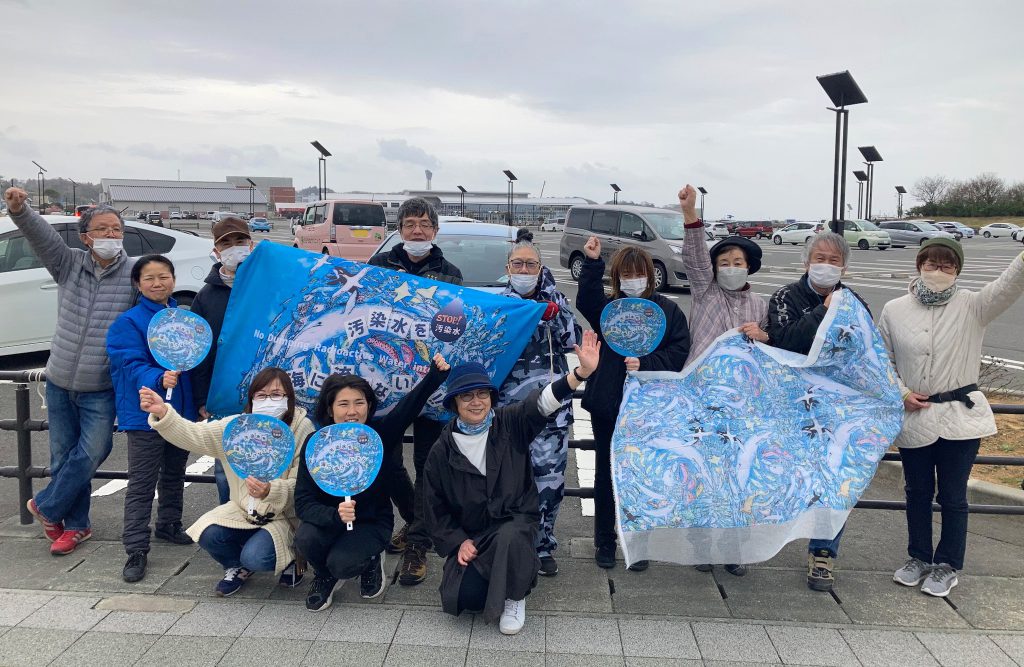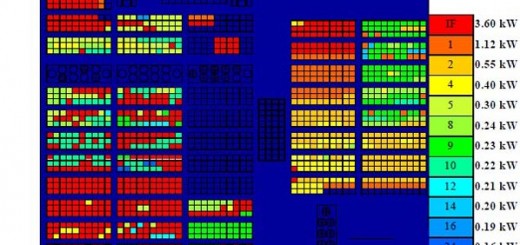Group Introduction: Citizen’s Conference to Condemn Further Pollution of the Ocean (Kore Umi)
By Oda Chiyo (Co-Director of Kore Umi)
We are a group of citizens who experienced the March 2011 accident of the Fukushima Daiichi Nuclear Power Station (FDNPS).
Comprised of members living in and outside Fukushima Prefecture, we carry out various actions to halt the release of FDNPS-generated contaminated water to the Pacific. Our actions include organizing lecture meetings, symposiums, proposal submissions to the national and municipal governments and TEPCO, opinion exchange gatherings, and standing protests.
According to the Japanese government’s plan, the water treated by the ALPS (“Advanced Liquid Processing System”) will be released from an offshore location one kilometer away from the power station site after dilution. An underwater tunnel is being built for this purpose and the release of the water through the tunnel is scheduled to start no later than summer 2023. In the explanation to the public, the government calls the water treated, which sounds as if it is cleared of all the radioactive nuclides except tritium. However, 70% of the treated water tanks have been found to include other radioactive isotopes such as strontium and carbon 14, and TEPCO has admitted that the water requires a secondary treatment.
Such water cannot be called treated, and we call it contaminated water. The difference in the naming represents how the government and we regard the water differently.
Hiring major advertising companies and spending a significant amount of taxpayers’ money, the government is trying to impress people with the safe image of the water by calling it treated — “it is free from all the radioactive isotopes except tritium, and tritium is not problematic” — inducing the people to believe that the release of the water into the ocean is safe. The government is trying to instill this image into the heads of children in educational institutions.
The government seems to make us, who call the water contaminated, sound overly nervous and look as if we are trying to incite anxiety in society. We often hear the government use the expression “rumor damage.”
The government says that tritium is released from nuclear facilities around the world, but many scientists have indicated its harmful impact, and we cannot regard it as safe.
The FDNPS exploded in 2011. The debris generated as a result of the multiple meltdowns is still too dangerous for human beings to be in contact with. The measures TEPCO is taking do not seem to be effective. The influence of the radioactivity that was spread by the accident will emerge over a long time. We believe that it is unacceptable and too premature for those who caused the accident to release the resulting contaminated water into the ocean.
The issue of the contaminated water release from the FDNPS should be discussed and decided with consideration for the different views of the people connected via the ocean. We started an action to encourage them to speak up.
Since the accident twelve years ago, many people in Fukushima have dedicated themselves to handing over as good an environment as possible to coming generations, even while they are also dealing with uncountable difficulties. We believe that, as survivors of the accident, continuing to speak up helps achieve this goal.


